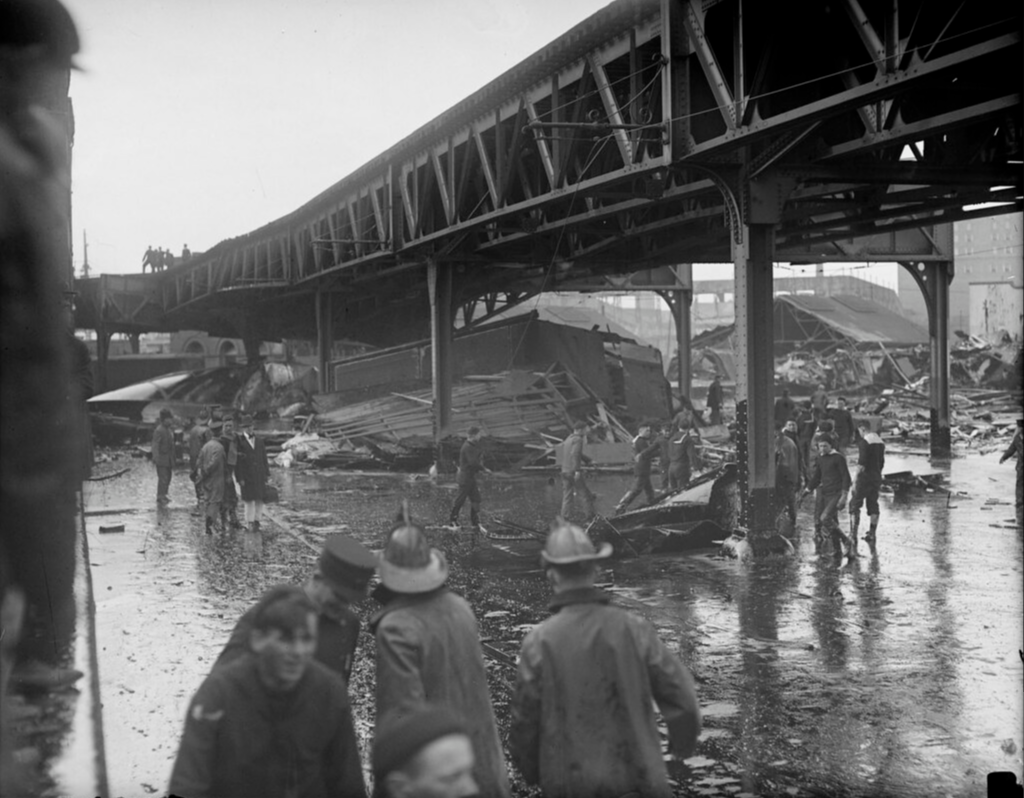The Boston Molasses Flood, also known as the Great Molasses Flood, was a tragic and bizarre industrial disaster that occurred on January 15, 1919, in the North End neighborhood of Boston, Massachusetts. It remains one of the most peculiar accidents in American history, leaving a lasting impact on the city and its residents.
At the time, a massive tank owned by the Purity Distilling Company stood tall along Commercial Street. This tank held a staggering 2.3 million gallons of molasses, a sticky and thick sugary syrup used in the production of rum and industrial alcohol. Tragically, the tank’s construction had been rushed, leading to structural weaknesses and inadequate safety measures.
On that fateful day, the temperature in Boston rose significantly after a period of frigid weather, causing the molasses inside the tank to expand and exert tremendous pressure on the already compromised structure. With an explosive force, the tank burst open, releasing an overwhelming wave of molasses that surged through the streets at an estimated speed of 35 miles per hour.
The wave of molasses reached heights of 15-40 feet and was a much as 160 feet wide, engulfing everything in its path. Buildings were torn apart, and the force was so powerful that it knocked the elevated train tracks off their supports. People, horses, and even entire carts were swept away by the relentless tide of molasses. The sweet-smelling but deadly syrup covered the streets, creating an eerie and catastrophic scene.
In the aftermath, 21 people lost their lives, and over 150 others were injured. The rescue and cleanup efforts were hampered by the sheer viscosity of the molasses, making it difficult for rescuers to navigate through the area and recover the victims. It took weeks to remove the sticky residue from the streets and buildings.
The disaster led to numerous lawsuits and investigations, highlighting issues of corporate negligence and inadequate safety regulations. Eventually, the Purity Distilling Company faced legal repercussions, but the disaster also spurred reforms in industrial safety regulations and construction standards, with more stringent oversight placed on such facilities.
Even today, the Boston Molasses Flood remains an unusual chapter in history, a reminder of the unexpected dangers that can arise from seemingly innocuous substances and the importance of responsible industrial practices and safety measures.
